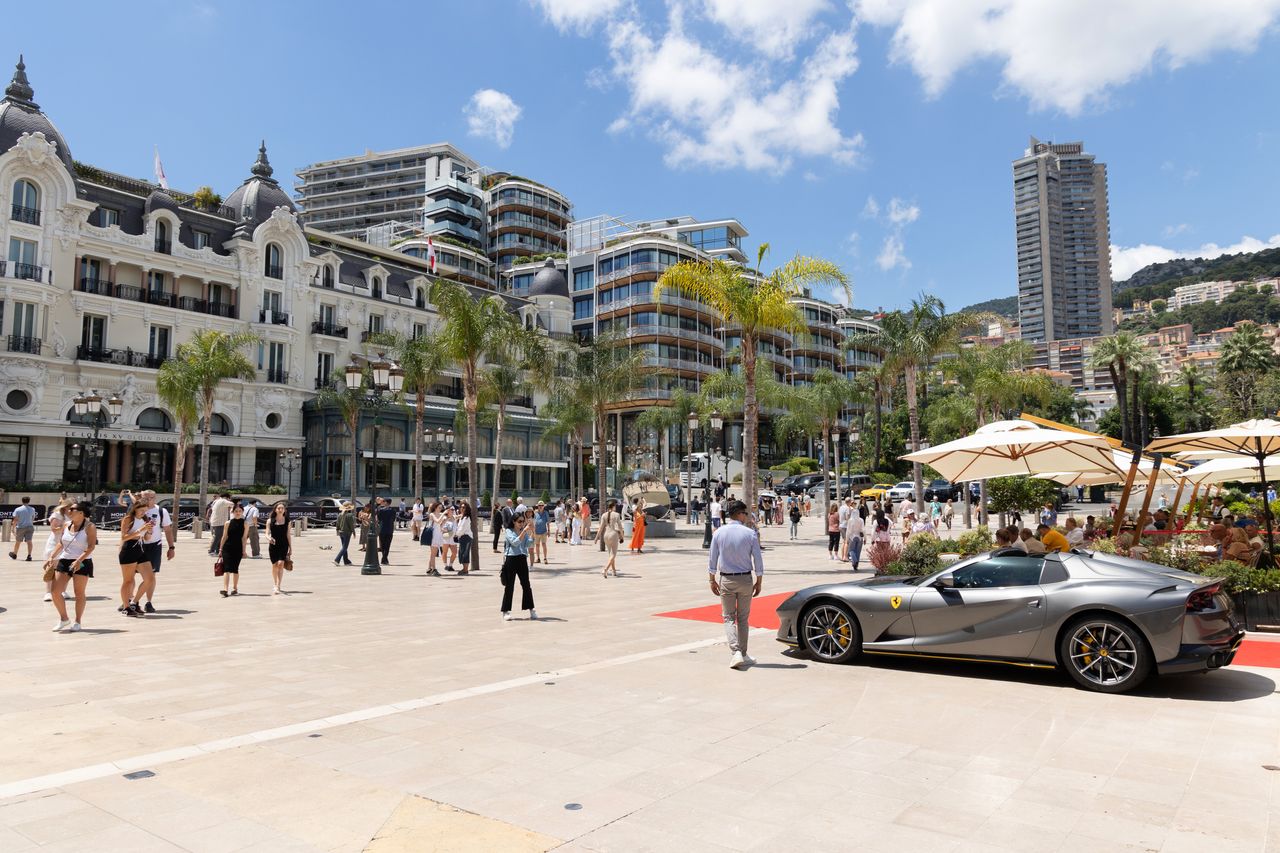Future Returns: Sustainable Investing Poised To Gain Assets
The Global Sustainable Investment Review indicates assets are rising quicky.
Assets in sustainable strategies are rising at a fast clip globally, with US$35.3 trillion invested as of 2020, according to a report out this week from the Global Sustainable Investment Alliance or GSIA, an international collaboration of membership-based sustainable investment organisations.
With several changes afoot in regions across the world, these figures are likely to climb further by the time the next report is released in two years. In the U.S.—where 48% of sustainable investing assets resided as of the beginning of 2020, according to the report—potential regulatory and legislative changes are expected to spur further interest in sustainable strategies.
The report, titled the Global Sustainable Investment Review (GSIR), is based on data provided through Dec. 31, 2019, with the exception of Japan, where the data is collected through March 31, 2020.
In part, that’s because these changes will lead to a rise in investments by individual investors in sustainable investing—which include a range of strategies emphasizing environmental, social, and governance, or ESG, matters. Currently about 25% of all investments in sustainable strategies are by “non-institutional” investors, a figure that held steady between the last two reports.
One reason assets haven’t expanded as fast in the retail market is that growth typically comes from retirement funds, where a majority of retail assets are invested, says Lisa Woll, CEO of US SIF: The Forum for Sustainable and Responsible Investment, a membership organization focused on shifting investment practices to sustainability.
And, Woll points out, the U.S.’s largest retirement plan—the US$760 billion Federal Thrift Savings Plan—doesn’t offer any ESG options to its 6.2 million members, Woll says.
Beginning next summer, however, members will be offered the option of investing in ESG mutual funds in response to a May executive order on climate-related financial risk from President Joe Biden.
Among several items, the order asks the secretary of labour to assess “how the Federal Retirement Thrift Investment Board has taken environmental, social, and governance factors, including climate-related financial risk, into account.”
“We’ve worked on this for a decade, to get them to implement that,” Woll says.
Penta recently spoke with Woll about trends in sustainable investing globally and in the U.S., much of which was detailed in the group’s own report on sustainable and impact investing trends in November.
Shifts in the U.S. Regulatory Landscape
Another drag on asset growth in retirement funds was the “anti-ESG agenda” of former President Donald Trump’s administration, Woll says. “Now, it’s a new era.”
The U.S. Department of Labor in March stated it would not enforce Trump-imposed rules limiting the ability of retirement-plan administrators to consider ESG factors in retirement options, and to engage in proxy voting on ESG-related issues, according to the report.
Also in March, the Securities and Exchange Commission took initial steps that could result in requirements by corporations to disclose climate-related risks to their operations in addition to a “potentially a broader set of ESG issues,” the report said.
More broadly, the Biden administration is addressing several ESG themes in addition to climate. One example is labour rights, the subject of the new White House Task Force on Worker Organizing and Empowerment.
The potential implications for ESG investing from the array of government actions taken so far, and those to be expected, haven’t fully been analysed yet, and could be significant. The climate-change directive, for instance, “affects so many different agencies in different ways,” Woll says.
And, she notes, a more recent executive order on competitiveness includes language about treating employees better, which is a key governance concern for investors.
It’s about “creating better capitalism and better companies,” Woll says. “There are all kinds of interesting focal points, including diversity, equity, and inclusions—big policy priorities for the administration and our members.”
The Rise of ESG Integration
By far the most popular sustainable investing strategy—representing US$25.2 trillion in assets globally—is “ESG integration,” an approach where ESG factors are explicitly included in financial analysis, according to the GSIA.
That’s a major switch from 2018, when negative screening was the most popular global strategy with nearly US$20 trillion in assets compared to US$15 trillion by 2020. Negative or exclusionary screening—which remains highly popular in Europe—removes categories of investments such as companies engaged in making weapons or tobacco, or those involved in human rights abuses, versus seeking out companies engaged in best ESG practices.
One reason for the popularity of this approach is that any investment manager who wants to get business increasingly needs to be a signatory to the Principles of Responsible Investment (PRI), a U.N.-sponsored network of investors, Woll says. “ESG integration was very much the preferred strategy taken up by those signatories.”
In the U.S. Woll is concerned, however, that many companies offering ESG integration strategies don’t clearly articulate their criteria, making it difficult for investors to know what kind of impact their investments are having.
“We have to have more transparency around this,” she says.
The Global Picture
While the GSIR report provides a good snapshot of sustainable investment trends in five major markets (the U.S., Canada, Japan, Europe, and Australia/New Zealand), it also reveals a sector that’s in flux as changing frameworks, regulations, and definitions make it difficult to precisely track global trends.
For instance, in Europe, assets invested in sustainable strategies fell 13% to US$12 trillion from US$14 trillion in 2018. But that decline simply reflects changes in regulatory definitions that no longer include some products or strategies.
In Australia and New Zealand, assets grew to US$906 billion from US$734 billion, but the growth was at a slower pace because of new industry standards for sustainable investment.
Given different strategies and different regulatory environments, the countries from major markets involved in the report are recognizing that field-builder institutions such as US SIF or the European Sustainable Investment Forum need to be resources for best practices, Woll says.
Reprinted by permission of Penta. Copyright 2021 Dow Jones & Company. Inc. All Rights Reserved Worldwide. Original date of publication: July 20, 2021
 Copyright 2020, Dow Jones & Company, Inc. All Rights Reserved Worldwide. LEARN MORE
Copyright 2020, Dow Jones & Company, Inc. All Rights Reserved Worldwide. LEARN MORE
This stylish family home combines a classic palette and finishes with a flexible floorplan
Just 55 minutes from Sydney, make this your creative getaway located in the majestic Hawkesbury region.
Continued stagflation and cost of living pressures are causing couples to think twice about starting a family, new data has revealed, with long term impacts expected
Australia is in the midst of a ‘baby recession’ with preliminary estimates showing the number of births in 2023 fell by more than four percent to the lowest level since 2006, according to KPMG. The consultancy firm says this reflects the impact of cost-of-living pressures on the feasibility of younger Australians starting a family.
KPMG estimates that 289,100 babies were born in 2023. This compares to 300,684 babies in 2022 and 309,996 in 2021, according to the Australian Bureau of Statistics (ABS). KPMG urban economist Terry Rawnsley said weak economic growth often leads to a reduced number of births. In 2023, ABS data shows gross domestic product (GDP) fell to 1.5 percent. Despite the population growing by 2.5 percent in 2023, GDP on a per capita basis went into negative territory, down one percent over the 12 months.
“Birth rates provide insight into long-term population growth as well as the current confidence of Australian families,” said Mr Rawnsley. “We haven’t seen such a sharp drop in births in Australia since the period of economic stagflation in the 1970s, which coincided with the initial widespread adoption of the contraceptive pill.”
Mr Rawnsley said many Australian couples delayed starting a family while the pandemic played out in 2020. The number of births fell from 305,832 in 2019 to 294,369 in 2020. Then in 2021, strong employment and vast amounts of stimulus money, along with high household savings due to lockdowns, gave couples better financial means to have a baby. This led to a rebound in births.
However, the re-opening of the global economy in 2022 led to soaring inflation. By the start of 2023, the Australian consumer price index (CPI) had risen to its highest level since 1990 at 7.8 percent per annum. By that stage, the Reserve Bank had already commenced an aggressive rate-hiking strategy to fight inflation and had raised the cash rate every month between May and December 2022.
Five more rate hikes during 2023 put further pressure on couples with mortgages and put the brakes on family formation. “This combination of the pandemic and rapid economic changes explains the spike and subsequent sharp decline in birth rates we have observed over the past four years,” Mr Rawnsley said.
The impact of high costs of living on couples’ decision to have a baby is highlighted in births data for the capital cities. KPMG estimates there were 60,860 births in Sydney in 2023, down 8.6 percent from 2019. There were 56,270 births in Melbourne, down 7.3 percent. In Perth, there were 25,020 births, down 6 percent, while in Brisbane there were 30,250 births, down 4.3 percent. Canberra was the only capital city where there was no fall in the number of births in 2023 compared to 2019.
“CPI growth in Canberra has been slightly subdued compared to that in other major cities, and the economic outlook has remained strong,” Mr Rawnsley said. “This means families have not been hurting as much as those in other capital cities, and in turn, we’ve seen a stabilisation of births in the ACT.”
This stylish family home combines a classic palette and finishes with a flexible floorplan
Just 55 minutes from Sydney, make this your creative getaway located in the majestic Hawkesbury region.






















